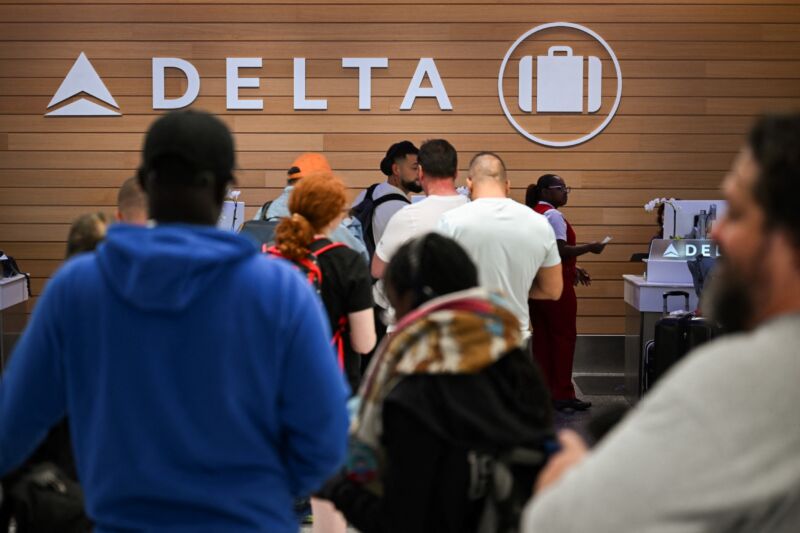Microsoft says Delta’s ancient IT explains long outage after CrowdStrike snafu

Microsoft says that Delta Air Lines’ ancient IT infrastructure is to blame for the airline’s inability to quickly recover from last month’s CrowdStrike debacle.
With Delta threatening to sue Microsoft and CrowdStrike, both companies issued responses saying that Delta refused repeated calls for help. A Microsoft letter to Delta yesterday said the Windows maker is starting to figure out why Delta took longer than other airlines to recover.
“Microsoft continues to investigate the circumstances surrounding the CrowdStrike incident to understand why other airlines were able to fully restore business operations so much faster than Delta, including American Airlines and United Airlines,” the letter from Microsoft attorney Mark Cheffo said. “Our preliminary review suggests that Delta, unlike its competitors, apparently has not modernized its IT infrastructure, either for the benefit of its customers or for its pilots and flight attendants.”
On July 19, a faulty update from security firm CrowdStrike crashed millions of Windows PCs. In a July 29 letter, Delta attorney David Boies said the airline has “reason to believe Microsoft has failed to comply with contractual requirements and otherwise acted in a grossly negligent, indeed willful, manner in connection with the Faulty Update,” according to CNBC.
Cheffo’s response to Boies said that “Microsoft empathizes with Delta and its customers regarding the impact of the CrowdStrike incident.” But the Boies letter “and Delta’s public comments are incomplete, false, misleading, and damaging to Microsoft and its reputation,” Cheffo wrote.
“Given Delta’s false and damaging public statements, Microsoft will vigorously defend itself in any litigation if Delta chooses to pursue that path,” Cheffo wrote. The letter demanded that Delta preserve documents related to the outage.
Delta allegedly refused offers to help
CrowdStrike previously wrote to Delta on Sunday. “CrowdStrike’s CEO personally reached out to Delta’s CEO to offer onsite assistance, but received no response. CrowdStrike followed up with Delta on the offer for onsite support and was told that the onsite resources were not needed,” the letter said.
Microsoft’s letter on Tuesday provided a similar description. “Even though Microsoft’s software had not caused the CrowdStrike incident, Microsoft immediately jumped in and offered to assist Delta at no charge following the July 19 outage,” the letter said. “Each day that followed from July 19 through July 23, Microsoft employees repeated their offers to help Delta. Each time, Delta turned down Microsoft’s offers to help, even though Microsoft would not have charged Delta for this assistance.”
The letter said that after one Microsoft outreach on July 22, a “Delta employee replied, saying ‘all good. Cool will let you know and thank you.’ Despite this assessment that things were ‘all good,’ public reports indicate that Delta canceled more than 1,100 flights on July 22 and more than 500 flights on July 23.”
Senior executives repeatedly reached out to Delta executives “with similar results,” the letter said. Microsoft CEO Satya Nadella emailed Delta CEO Ed Bastian on July 24, but Bastian never replied, according to the letter.
Microsoft says it has a pretty good idea of why Delta refused its help. “In fact, it is rapidly becoming apparent that Delta likely refused Microsoft’s help because the IT system it was most having trouble restoring—its crew-tracking and scheduling system—was being serviced by other technology providers, such as IBM, because it runs on those providers’ systems, and not Microsoft Windows or Azure,” the letter said.
We contacted Delta today and will update this article if the company provides a response.
https://arstechnica.com/?p=2041521